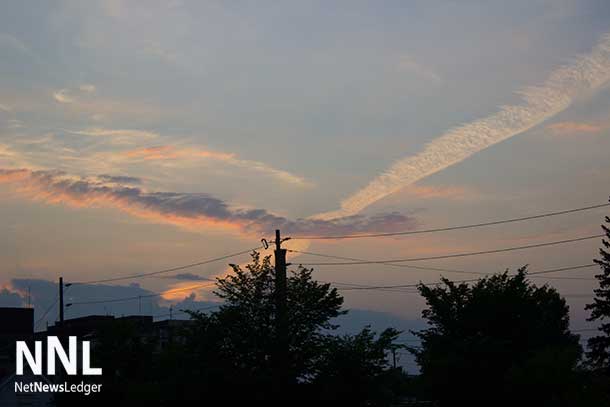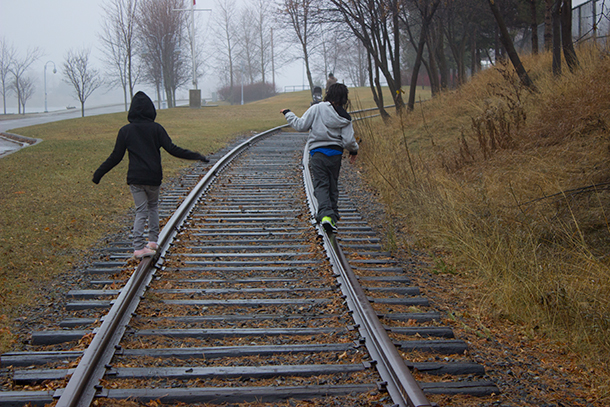THUNDER BAY – The Board of Directors of the Wilderness Discovery Family Camp have issued a statement regarding the future of the facility:
In a decision by the Board of Directors last evening Hagi Community Services for Independence has decided that there is no other option than to stop operating the Wilderness Discovery Family Camp and Resort unless there is a significant change in the financial picture. The current cost to operate the barrier free resort is approximately $200,000 per year and the Board has decided to direct its resources to alternative recreation and arts programming for people with a disability.
Hagi has always operated the camp with a combination of fundraising and summer rentals.
Hagi will immediately start fundraising and planning for a new program that will be similar to the Make-A-Wish foundation and provide opportunities to attend cultural, recreational and sporting events. “We will build on partnerships with existing disability arts and recreation organizations, and build toward a very positive future”, said Hagi Executive Director David Shannon.
Mr. Shannon also said, “It is with much thought and difficulty that the Board made this decision. However, with the new direction that it is taking, we believe that there will be better recreation and arts opportunities for persons with a disability in Northwestern Ontario, and we will be able to focus on the people right in our region who need us to help them access these opportunities the most. I believe that after people consider where we are going with the future of this program they will be very excited.”
The Wilderness Discovery Family Resort & Conference Centre was developed in the early 1980’s, by the Handicapped Action Group Incorporated, to promote outdoor recreation for persons with a disability.
Wilderness Discovery-Backgrounder
In the 1980’s the HAGI began to focus on the development of a residential camp. The organization initiated a camping program that involved one to five day canoe trips into the wilderness matching able‑bodied individuals with disabled. However, the result was that a majority of the individuals with severe disabilities were still unable to participate because of the rugged conditions.
The closest accessible affordable residential camping program was eight hundred to a thousand miles away in Sudbury or Northwest of Toronto. Due to the distance, cost, and the availability of accessible transportation; the number of disabled from Northwestern Ontario, who were able to participate, was limited.
In 1984 the Ministry of Natural Resources entered into discussions with the HAGI on the leasing of waterfront property on Shebandowan Lake. This property previously leased by the YMCA had four cabins and a cinder block lodge. We were successful in obtaining a land use permit for the site by late December 1984 after negotiations with both the Ministry and the Shebandowan Campers Association.
During our first year of operation, extensive renovations were done to both the buildings and property to make it accessible to persons with a disability. An appeal to the community resulted in a successful furniture drive allowing us to furnish all the buildings.
In August of 1985 and again in 1986 and 1987 a summer camp program was provided, with approximately 150 disabled taking advantage of the facilities.
The camp was established to meet the following objectives:
1. To provide a residential facility completely barrier free in design for all persons with a disability.
2. To provide a residential facility at affordable rates, since approximately 70% of persons with a disability are on a fixed income.
3. To provide an environment that will promote independence of persons with a disability.
In late 1987, a twenty‑year lease was negotiated with the Ministry and fundraising began to raise money to rebuild the cabins and lodge.
A Wintario application was approved for 1988 and support from all of the major local service clubs (Rotary, Kiwanis, Kinsmen, and Lions), construction began to build four cabins averaging approximately 1,000 square feet each. Each cabin was designed barrier free and is self contained with two bedrooms, kitchen, living room, and a bathroom with a wheel-in shower.
In 1989, we saw the start of residential camping again in the new facilities with approximately 111 individuals taking advantage of the camp. We also started building our fifth cabin this year as the demand had exceeded our expectations.
The programming of the camp is a two tiered program, one non-structured and the other structured. The non-structured program consists of disabled and non disabled of all ages with their families and friends. The person with a disability who use the facilities do so at a subsidized cost of $25.00 per person per night. A person with a disability may have friends and/or family members accompany him to ensure all of his/her personal needs are being met.
The structured program is when an agency block books the camp for a specific time and assumes all operating costs for that period. We currently work with the Autism Ontario, Kidney Foundation, St. Josephs Care Group, Ontario March of Dimes, Community Living Thunder Bay and all of the local senior homes.
The camp is available to children, adults, and seniors with a disability as well as the general public. However priority is given to Thunder Bay and area residents with a disability and individuals with a disability from Northwestern Ontario.
Thanks to a generous donation from the Lakehead Rotary Club a unique walkway was constructed that created a fully accessible property enabling individuals to freely move around from the upper levels to the dock with out assistance.
In 1994 a new twenty year lease was signed with the Ontario Realty Corporation who was given the mandate to oversee the province’s realty holdings.
In 2006 the facility got a face lift with cabins getting refurbished and re-furnished and a new state of the art main lodge and conference centre was constructed to replace a fifty year old cinder block building.
The new lodge was developed and built environmentally friendly; designed to take advantage of both passive solar technology and future active solar technology. It was designed completely barrier free to accommodate a wide variety of disabilities. It has a main hall, a smaller meeting area a fully functional kitchen a recreation centre and future expansion possibilities of two living quarters.
Currently
Today, we average over 632 campers annually, who utilize our facilities for a variety of programs and services, from fishing, swimming, nature treks, campfires, barbecues, retreats and our popular pontoon boat rides around the lake.
The management of the facilities is done by an elected Board of Directors, guided by an Advisory Committee of active members of the organization and users of the facilities. The Advisory Committee reviews operations, monitors usage, recommends policies and procedures, and helps in the design and development of the camp. Stressing the mandate of the organization, all the members of both the board and committee, are made up of consumers with a disability who have a genuine interest in promoting equality of access to recreation.
Volunteers play a big role in the day to day upkeep of the facilities with over 2500 hours annually donated to help us offer our disabled community a state of the art facility that meets their recreational needs.


